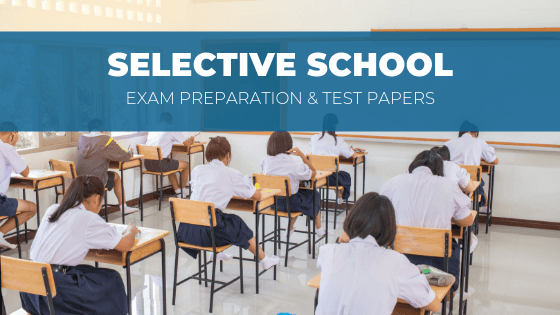The Australian public education system provides the opportunity for gifted and talented students to excel at every chance. Selective high schools accept qualified students who will be grouped with other similarly skilled students. Students will be exposed to specialised classes and educational materials, as well as different types of teaching methods that they wouldn’t otherwise get at a regular school.
Selective high schools admit entry only to those who pass their respective criteria. This is why every year, the committee of High Performing Students Team administers a placement test for Year 6 students who wish to gain admission in selective high schools. This measures the student’s ability in reading comprehension, writing, mathematics and general ability. Some selective high schools with a specialisation for arts may form this as part of a student’s application.
The process starts with an online application period that usually starts at October and ends mid-November. The application period is strictly observed, with no extensions allowed.
Application to Selective High Schools
Parents and students are encouraged to provide their top schools of choice, a maximum of three. They should be written in order of priority. Should the student qualify for more than one school, they will be placed at the school listed first. Before filling out the application, it’s important to consider the best school for the student and the sequence of how the list should go.
Changes can’t be made once the online application has been submitted and the test results have been released. If you wish to submit a change in your choice of schools, it can be done by emailing the High Performing Students Team.
Preparation
As a student, remember that everyone else taking the exam is just as gifted and talented as you. That’s why selective exam preparation is the key. Relying alone on your innate ability may leave you with only half the chance of getting in your school of choice. Some students prepare for the examinations for a whole year. They may even get external help from tutors or selective school exam preparation classes.
So how can you prepare and maximise your chances to get better results in the Selective High School Placement Test?
The first step is to get familiar and comfortable with the testing process. During the test, you will be placed under pressure to complete four exam areas under two hours and twenty minutes. If you’re not familiar with the scope and number of items on each test, it may be hard to pace yourself. Know that 20 minutes is allotted for the essay writing portion and the rest is allotted 40 minutes each. The Reading Test has 45 questions, Maths is made up of 40 questions and General Ability has 60 questions.
Download past exam materials and use free or paid selective test preparation materials. While the questions will not be what you would actually get on the test, you’ll be able to get an idea of when to linger or move on from a question. By constantly timing yourself on full mock exams, it will allow you to get comfortable with the time constraint and make you better at time management.
Prepare for Maths exams by making sure that you understand the basic operations, the multiplication table and basic math concepts. Students that dread maths are actually found to struggle with understanding the basic foundation of maths. Get these down and then you can move on to more complex concepts easily. Make a fun activity out of taking logic tests online that include abstract reasoning, numerical reasoning and verbal reasoning. Through this, you’ll develop your logical reasoning and pattern recognition skills.
The writing test will start with a stimulus topic. It could be an image, a question or a statement that you need to write about. You’ll be graded on your use of language, depth and quality of thought and the organisation of ideas.
Here’s a tip they don’t often tell you: preparing for the writing exam also prepares you for the reading comprehension portion! You prepare for these two by reading every day. Short stories, novels, anthologies, essays, opinion and editorial articles and corresponding letters from readers are very good reading material that will help you.
Take note of word usage and look up words whose meanings you don’t know. You can also practice by writing an essay or your opinions on a popular topic or news headline.
Get an adult, preferably a tutor or a teacher, to supervise your mock exams and selective school test preparation so you could get valuable advice and feedback. You may even ask them for tips and strategies on how to move from one question to the next in a breeze. Remember that exams like these usually have repeating questions; use that to your advantage!
When you feel overwhelmed by the preparation, don’t forget to take a break. Focus on a different activity every once in a while to relieve tension and get your whole body to relax.




